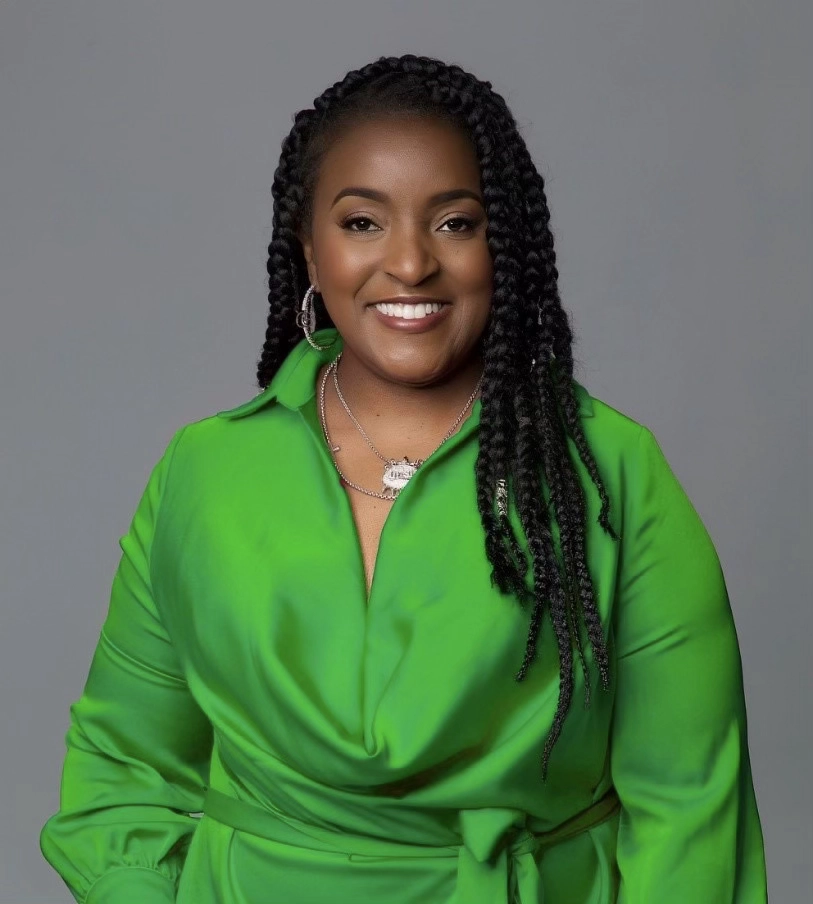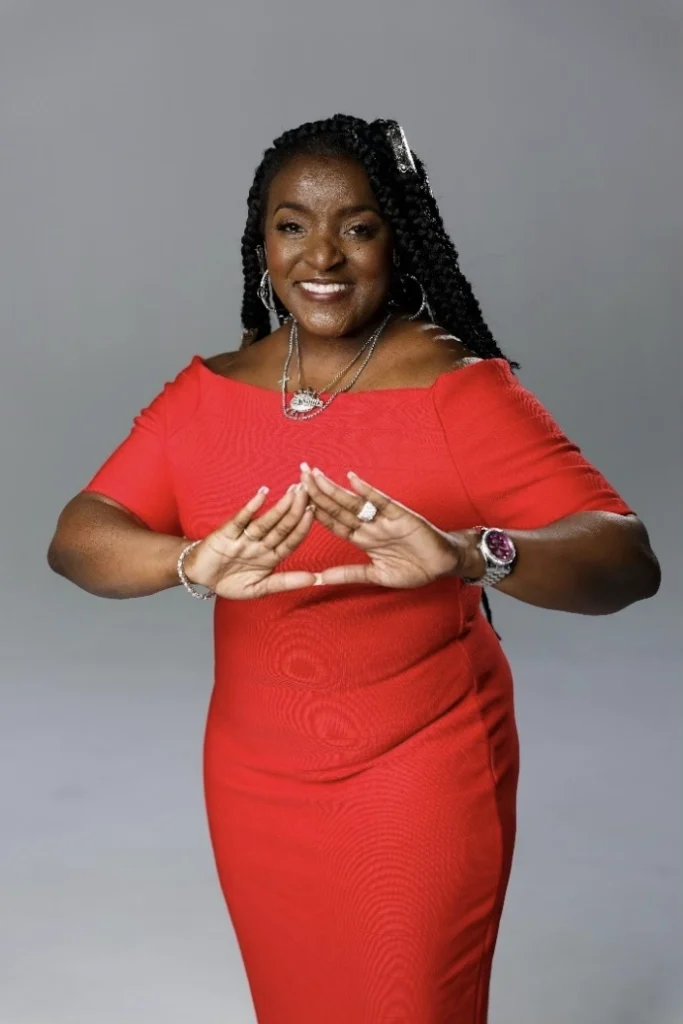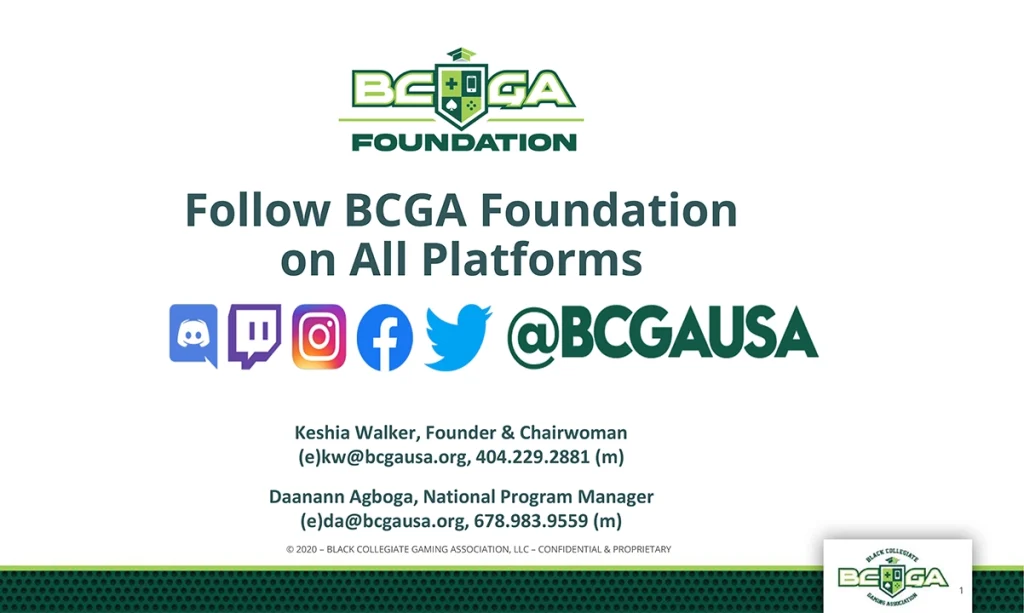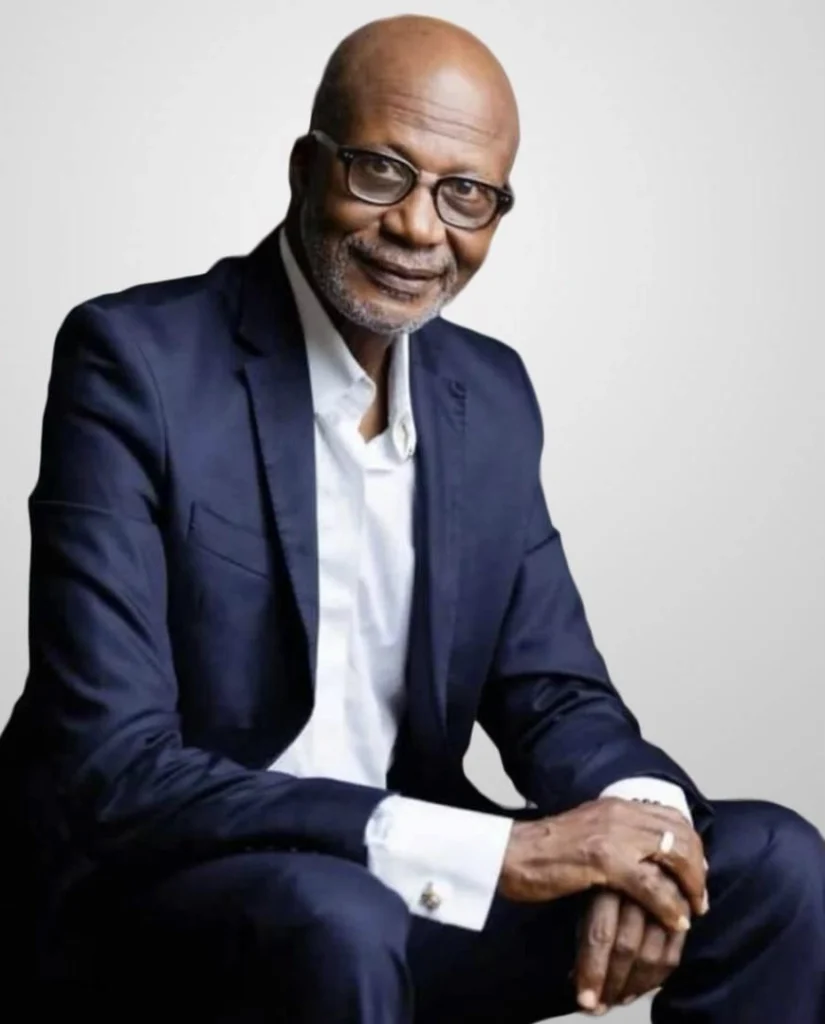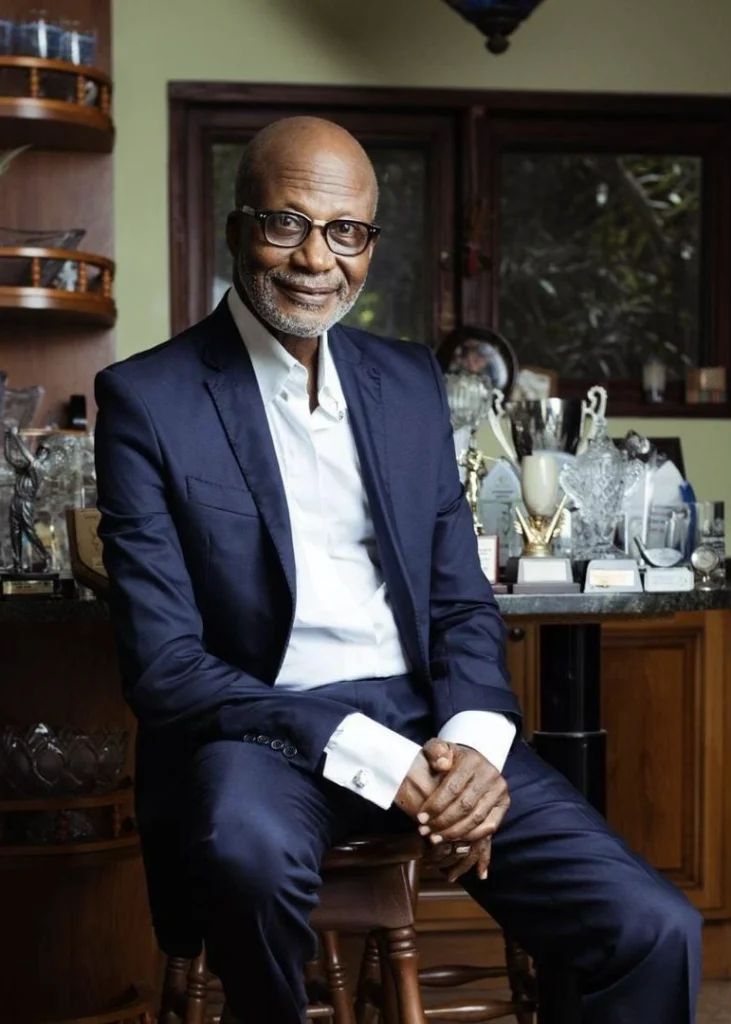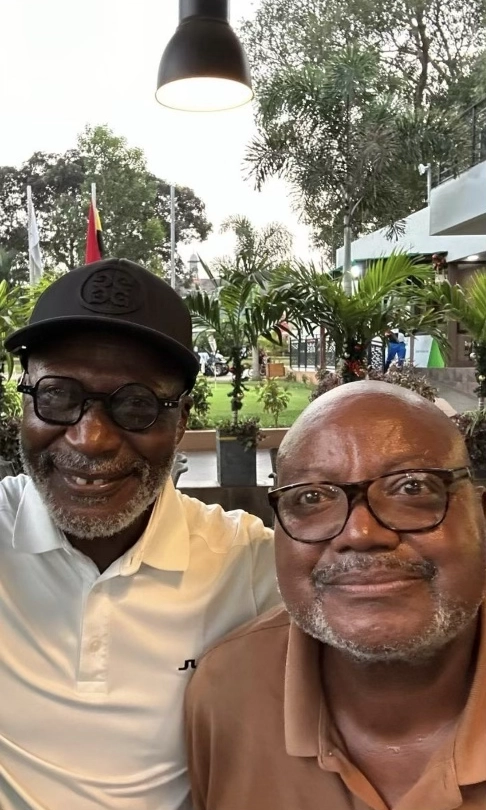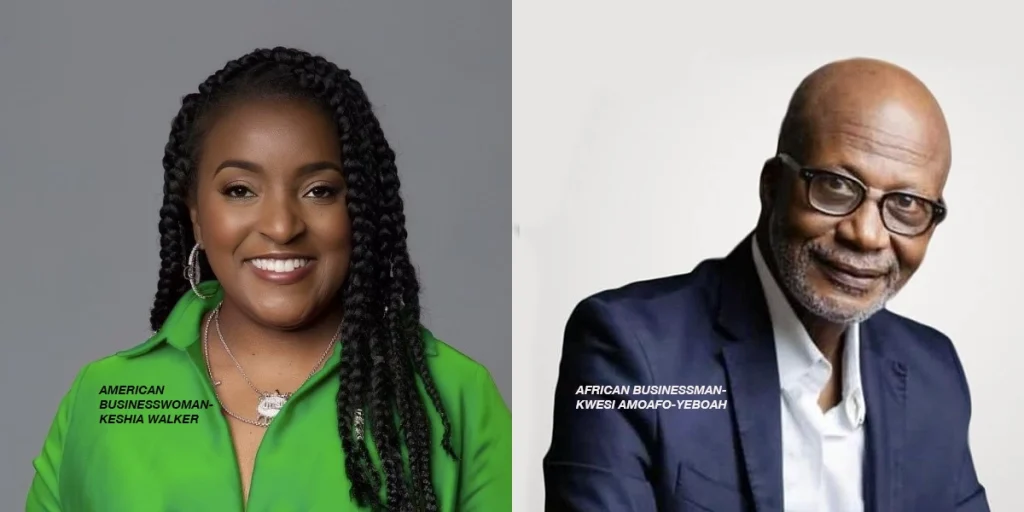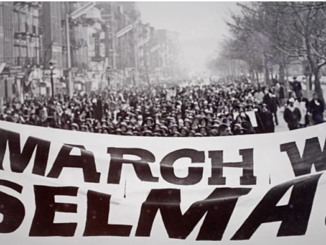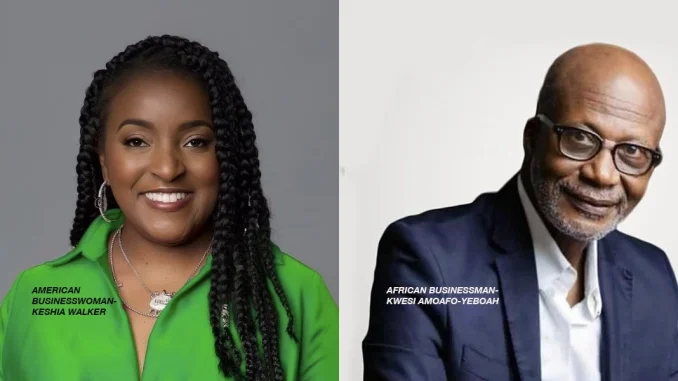
By Prof. Earl N. Caldwell II
GAMING
Welcome to Global Conversations With The Fly Prof. In this edition, you will meet one American businesswoman and one African businessman who are making significant contributions to the global Gaming industry. Each brings a unique set of experiences, perspectives, and skills to the table. Despite their different backgrounds and professional journeys, both have found innovative ways to shape and expand the Gaming Ecosystem — creating opportunities, driving inclusion, and influencing the future of interactive entertainment worldwide.
AMERICAN BUSINESSWOMAN-KESHIA WALKER
CORPORATE & ENTREPRENEURIAL FOUNDATIONS
Keshia Walker, a proud Southern Belle, is the Founder and Chairwoman of the BCGA Foundation and the President and CEO of Insights Marketing & Promotions. A dynamic leader and trailblazer in business and community engagement, Keshia is a graduate of Florida A&M University, where she earned both her Bachelor of Science and Master of Business Administration (MBA) degrees. She also holds an Executive MBA from the Tuck School of Business at Dartmouth College.
Ms. Walker’s professional journey reflects an impressive range of experiences across major industries and global brands. She began her career with Amoco Oil Company in Credit Card Marketing in Chicago, followed by a role at Procter & Gamble in Brand Management, where she helped launch the Aleve pain reliever brand in Cincinnati. She later joined BellSouth in Atlanta, continuing her work in brand management, before moving to The Coca-Cola Company, where she was a Customer Marketing Manager and serviced businesses such as TGI Friday’s, Perkins and Friendly’s. Drawing on her deep expertise in marketing strategy, consumer engagement, and brand leadership, Keshia founded Insights Marketing & Promotions in 1998, while still at Coca-Cola — transforming her vision into one of the most respected multicultural marketing and events firms in the country.
Entrepreneurship has been part of Keshia Walker’s journey since her college days. While still working at Procter & Gamble, she launched And Still We Rise Productions, producing events for major spirits companies. Before relocating to Atlanta, she reached out to her existing clients for referrals and connections in the new market — a strategic move that helped her seamlessly transition her growing business. Once in Atlanta, Keshia continued organizing events for brands such as Bacardi, and her clients soon began requesting marketing research and consumer insights. That demand inspired the name “Insights”, reflecting her ability to help brands better understand and engage with their audiences.
With encouragement from her clients — and, as she often shares, guidance from her faith and prayer — Ms. Walker officially founded Insights Marketing & Promotions. Nearly 30 years later, the company stands as a testament to her vision, resilience, and continual evolution as a trailblazing entrepreneur and businesswoman.
EARLY YEARS PLAYING GAMES & WHEN GAMING ENTREPRENEURIAL SPIRIT TRULY BEGINS…
More than three decades before founding the BCGA, Keshia Walker was already part of gaming’s early generation. She grew up playing on the original Atari, competing against neighborhood boys and mastering arcade classics like Frogger, Centipede, Donkey Kong, Galaga, Pac-Man, and Ms. Pac-Man. Her love for gaming has spanned every era — from Atari to PlayStation 5 — and remains as strong as ever.
Today, Keshia Walker’s favorite game is Madden NFL, though she also enjoys Halo and Rocket League. She has been playing Madden since it first launched more than 20 years ago, drawn not only by her lifelong love of football but also by a deeper sense of connection. One of the most pivotal titles in the series, Madden NFL 2001 for PlayStation 2, introduced more lifelike visuals, improved gameplay, and authentic player experiences. The Lead Designer behind that groundbreaking release was Gordon Bellamy — a Black game developer whose visionary work helped redefine sports gaming. His contributions made Madden NFL 2001 not just a sports game, but a powerful reflection of football’s strategy, emotion, and personality, and a lasting symbol of excellence, creativity, and representation in the gaming industry.
During the height of the COVID-19 pandemic, Ms. Walker had a life-changing conversation with her then 11-year-old nephew. He tried to explain to his mother—Keshia’s sister—that he wasn’t interested in traditional sports but was deeply passionate about gaming. When Keshia joined the discussion, she quickly realized how much the world had changed. Her nephew enthusiastically described who he was gaming with around the world, the colleges he hoped to attend with Esports programs, the professional gamers he admired, and even how much money top players were earning.
Keshia was astonished. Despite having been a casual gamer herself for years, she hadn’t realized the enormous cultural and economic impact of gaming—or how organized and competitive the Esports landscape had become. She also couldn’t ignore what she didn’t see: women and people of color, especially Black players and creators, were largely absent from the spaces her nephew followed and aspired to join. Most of the professional gamers he admired were white or Asian men, and the colleges he named were predominantly white institutions.
Coming from a proud family of HBCU graduates, Ms. Walker saw both a problem and a profound opportunity. In that moment, her concern for her nephew’s future—and for the countless other young people like him—sparked a new vision. In May 2020, she launched the Black Collegiate Gaming Association (BCGA), a not-for-profit foundation, her next major entrepreneurial venture, dedicated to creating equity, access, and representation for Black students and professionals in the gaming industry.
BCGA
The BCGA now reaches tens of thousands of students and gamers across the United States and around the world. The organization currently includes 19 member HBCUs spanning 12 states, with a growing international footprint.
BCGA has established dedicated Gaming and Innovation Labs at 16 campuses, providing students with access to cutting-edge technology, collaboration spaces, and industry exposure. (Two labs were destroyed by storms in North Carolina and Florida, and a third is currently being relocated on campus.)
Through its comprehensive programs, BCGA supports student gaming and Esports clubs, facilitates internships with leading gaming and technology companies globally, and has awarded more than $200,000 in scholarships to students at HBCUs, PWIs, and associate colleges. The organization also operates mentorship programs that connect students with professionals and executives in the gaming, tech, and entertainment industries — helping to prepare the next generation of diverse innovators and leaders.
The Gaming and Innovation Labs are designed to create a holistic environment where students can study, practice, play, and compete — fostering both academic and professional development within the gaming ecosystem.
The size and configuration of each lab depend on the space allocated by the host college or university. Each facility is outfitted with state-of-the-art technology provided by BCGA’s strategic partners, including Sony PlayStation, Lenovo, and Intel.
Every lab includes at least 10 high-performance PC stations, accommodating up to 20 students simultaneously, as well as 12 PlayStation 4 and PlayStation 5 consoles, allowing an additional 24 players to participate. Altogether, each lab can support 36 to 50 — and in some cases up to 60 — students at one time, enabling BCGA’s 19 member schools to engage in practice sessions, coursework, and intercollegiate tournaments simultaneously.
The next evolution of the BCGA Gaming and Innovation Labs will focus on expanding their educational and technological capacity through certification programs in Artificial Intelligence (AI), Augmented Reality (AR), Virtual Reality (VR), and 3D design and printing.
These advancements will position the labs as multidisciplinary innovation hubs, preparing students not only for gaming and Esports careers but also for emerging roles in technology, design, and digital media production.
BCGA has started the initiative to extend beyond college campuses to include after-school programs, middle school initiatives, and summer academies — introducing younger students to gaming, coding, and immersive technologies at an early age. Through these efforts, BCGA continues to build a diverse and sustainable talent pipeline for the global gaming and technology industries.
COMPETITIONS
There are three primary formats through which gaming competitions and engagement programs are organized:
- Member School Tournaments:
These include intercollegiate tournaments hosted among BCGA member institutions, as well as special events such as Girls Got Game, Women Got Game, Black College Con, and Military Play — programs that collectively engage thousands of gamers around the world. - External Tournaments:
Competitive events hosted by game publishers, corporate partners, and industry organizations, in which BCGA-affiliated students and teams participate to gain exposure and experience on a broader stage. - HBCU Conference Tournaments:
Esports and gaming competitions conducted in collaboration with HBCU athletic conferences, including the SWAC (Southwestern Athletic Conference), SIAC (Southern Intercollegiate Athletic Conference), and MEAC (Mid-Eastern Athletic Conference) — expanding the reach and representation of HBCU students in the national gaming landscape.
MILESTONES AND PARTNERSHIPS
Among BCGA’s many achievements, Ms. Walker is most proud of its Gaming and Innovation Labs — historic, first-of-their-kind facilities that have transformed the campuses of member HBCUs. These labs stand as symbols of progress, representation, and opportunity in the gaming and technology industries.
BCGA also takes great pride in its scholarship initiatives, which have helped more than 150 students remain in school and continue pursuing their academic and professional dreams.
None of this would be possible without the continued support of BCGA’s corporate partners, including Logitech, Sony PlayStation, ADT, Intel, and McDonald’s — visionary organizations that have been with BCGA since its inception and share its mission to create a more inclusive and innovative gaming ecosystem.
CLOSING THOUGHTS FROM KESHIA WALKER
In her closing reflections, Ms. Walker emphasizes the growing range of opportunities available in today’s gaming industry. She notes that more than 200 colleges and universities across the country now offer degrees or coursework in gaming, Esports, and interactive media. For those who may not choose a traditional college route, she points out that every branch of the U.S. military — except the Marines — offers professional career pathways in gaming, technology, and digital simulation, both for enlisted personnel and commissioned officers.
Students who complete in high school can also pursue industry certifications in gaming and Esports, opening doors to employment at one of more than 40 gaming-related companies, where starting salaries typically begin around $50,000 — with significant potential for growth.
For aspiring entrepreneurs, Ms. Walker shares her personal framework for achievement, known as her “5 P’s for Successful Entrepreneurship”:
KESHIA WALKER’S 5 P’s FOR SUCCESSFUL ENTREPRENEURSHIP
- Patience
- Prayer
- Persistence
- Planning
- Partnerships
You can find BCGA on social media at….
BCGA Foundation Social media platforms: @bcgausa on all platforms – Instagram, Twitter, Facebook & Twitch.
Contact Details:
Keshia Walker, Founder & Chairwoman
(email): kw@bcgausa.org. (mobile): 404-229-2881
Daanann Agboga, National Program Manager
(email): da@bcgausa.org, (mobile): 404-316-2525
AFRICAN BUSINESSMAN-KWESI AMOAFO-YEBOAH
COMING TO AMERICA
When Kwesi Amoafo-Yeboah left his home country of Ghana, West Africa, at just 18 years old to attend San Francisco State University, where he studied Electrical Engineering and Petroleum Physics, he could not have imagined the extraordinary path his life would take. His journey would span industries and continents — from selling insurance and working for an oil company drilling wells, to establishing one of the top luxury rental car businesses in the United States that was featured in Black Enterprise.
SELLING LIFE INSURANCE
After graduating from San Francisco State University, Mr. Amoafo-Yeboah found himself unemployed for nearly a year. One day, he came across a newspaper advertisement for a sales position in insurance, applied, and was offered the job. Success did not come immediately. After many unsuccessful attempts, he visited an 85-year-old man as part of his sales calls.
Kwesi explained that his purpose was to convince the man to take value from his existing policy to purchase additional insurance coverage. The elderly gentleman listened patiently before replying that his children were grown and he no longer needed more insurance. Yet, there was something sincere and determined about the young salesman that moved him. Smiling, the man said, “You need a sale — so I will buy.”
DIGGING OIL WELLS
Mr. Amoafo-Yeboah fondly reflected on his time working for an oil company in Bakersfield, California, describing it as one of the most exciting chapters of his early career. He said he felt “like a kid in the playground,” energized by the challenge of exploration and the pursuit of discovering where to drill for oil. What amazed him most, however, was that during his interview for the position, the hiring manager seemed interested in only one thing — his successful experience selling insurance. This job provided Mr. Amoafo-Yeboah with the financial means to begin investing in other ventures.
BUSINESS IN AFRICA WHILE LIVING IN THE UNITED STATES OF AMERICA
After leaving the oil company, Mr. Amoafo-Yeboah reconnected with a friend and collaborated on building a Dr. Pepper bottling plant in Nigeria. His frequent travel between the United States and Africa soon reignited his entrepreneurial creativity, leading him to establish an import/export business in Cameroon. These ventures provided him with invaluable insight into the complexities and opportunities of doing business in Africa.
Around this time, there was a growing trend of importing cars from Europe, modifying them to meet U.S. regulatory standards, and then selling them domestically for a profit. Recognizing the opportunity, Kwesi made this his next business venture — marking the beginning of his entrepreneurial path.
LEASING LUXURY CARS
By the time Mr. Amoafo-Yeboah purchased his first European Mercedes-Benz, made it compliant with U.S. regulations, and shipped it to America, the market had already become oversaturated. Major car manufacturers had begun pressuring banks to stop lending to individuals engaged in private importing because it was cutting into their profits.
While searching for a new solution, a friend casually suggested, “Why not lease your car?”
Intrigued, Kwesi researched and found a leasing company willing to take vehicles on consignment. After signing his first agreement, he earned $3,000 in the first month and $3,500 in the second. Encouraged by the success of this pilot program, he expanded the concept — reaching out to others who owned luxury cars and offering to lease them through his operation. Within a few days, Mr. Amoafo-Yeboah had 10 vehicles under management. His luxury car rental and leasing business became so successful that Black Enterprise magazine featured him and his company in 1986, recognizing him as a trailblazer in innovation and entrepreneurship.
GOING BACK HOME
Like many immigrants, Mr. Amoafo-Yeboah regularly sent money back home to support his family in Ghana. In the late 1980s and early 1990s, however, the options for doing so were — either entrusting a friend traveling to Ghana to hand-deliver the funds or risking it through the mail. Recognizing the inefficiency and risk, Kwesi began searching for a better way.
The solution, he realized, was Western Union. When he reached out to the company, their response was simple: “If you can figure it out — go for it.” And he did. Mr. Amoafo-Yeboah began traveling across Africa, working to establish banking agents and payment networks that would lead to opening the first Western Union. Between 1993 and 1997, his team’s efforts were so successful that when the Representation Agreement expired between Mr. Amoafo-Yeboah’s company and Western Union, it was not renewed and Western Union continued to expand throughout Africa.
Through these experiences, Kwesi began to recognize not only the untapped potential of the continent but also the pressing need for practical, locally driven solutions to many of Africa’s economic, infrastructure and development challenges. These experiences also inspired deeper reflection from Kwesi. He realized that to truly solve the kinds of problems Africa faced, the continent needed more innovators and problem-solvers like himself. To make the greatest impact, he decided it was time to return home — not just as a businessman, but as a catalyst for change.
TELECOM INDUSTRY
When Mr. Amoafo-Yeboah returned to Ghana, he began searching for his next opportunity. Around that time, the telecommunications industry was just beginning to emerge as one of the fastest-growing sectors in the country. A local telecom company called Spacefon (one of Ghana’s earliest mobile network providers) had made a strategic discovery: by selling airtime in smaller, more affordable units, they could open the market to lower-income consumers and dramatically expand access to mobile communication.
Recognizing the potential, Spacefon sought out independent dealers to help distribute these airtime units — and Kwesi became one of them, marking his entry into what would soon become one of Africa’s most transformative industries.
Over the years, Mr. Amoafo-Yeboah’s airtime distribution company grew steadily and became one of the largest in the Ghanaian marketplace. When MTN, a leading South African telecommunications company, acquired Spacefon, it created a new opportunity for consolidation within the industry. Recognizing the advantages of economies of scale, several of the country’s top airtime distributors decided to join forces to strengthen their market position and streamline operations.
This collaboration led to the creation of IZone, a unified entity focused on selling and managing MTN airtime distribution across Ghana. For his leadership, experience, and proven vision, Mr. Amoafo-Yeboah was selected as Chairman (the name many friends and colleagues refer to him as) — guiding IZone to become a key player in the nation’s telecommunications sector.
FINDING HIS WAY TO GAMING
One day, Mr. Amoafo-Yeboah noticed his son deeply engaged in a video game, excitedly accumulating points. Curious, he asked, “What do you do with all the points you’ve earned?” His son replied simply, “Nothing.”
That brief exchange sparked an idea. Kwesi realized there was an opportunity to create a rewards-based system that allowed gamers to earn tangible value from the points they accumulated through play. This insight became the foundation for his next entrepreneurial venture — the creation of Gudu Studios, a company designed to bridge gaming, technology, and real-world rewards.
Gudu Studios currently features four games on its platform, with plans underway to expand the catalog and grow the company into a nationally recognized brand. Within its gaming ecosystem, the Gudu Team has developed two distinct revenue streams.
The first involves in-game advertising billboards, which allow brands and service providers to promote their products within the gaming environment in dynamic, engaging ways. The second is a “Top-Up” model, where players can purchase upgrades, tools, or items that enhance their performance and progression within the games.
While the Chairman is pleased with the revenue potential generated through in-game billboards and the Top-Up model, he continues to explore innovative ways to add value for both gamers and brand partners.
In pursuit of this goal, he engaged Melcom, Ghana’s largest retail department store chain, which offers thousands of products across hundreds of well-known brands. The partnership between Gudu Studios and Melcom will allow gamers to redeem or use their in-game rewards to access Melcom’s extensive range of products — effectively linking the virtual gaming economy to real-world value.

Mr. Amoafo-Yeboah is confident that this collaboration will pave the way for other major brands in Ghana to connect with the young, tech-savvy, and rapidly growing gaming community that Gudu Studios continues to cultivate.
Through this multi-revenue approach, Mr. Amoafo-Yeboah and his team are positioning Gudu Studios as a forward-thinking player in Africa’s emerging gaming and digital entertainment industry — one that blends creativity, commerce, and community impact.
MOTIVATIONS
Mr. Kwesi Amoafo-Yeboah, now 72 years old, continues to pursue both current and future projects with the same energy and vision that have defined his remarkable career. When asked to reflect on his decades of success across multiple industries, countries, and personal passions — including his love of golf and his service as a board member and vice president of the Achimota Golf Club — he paused thoughtfully before saying:
“What you don’t use, you lose. And so I gotta keep my imagination going. I gotta keep my brain going, my muscles and body moving around, and…I just love it. I love doing it, you know?”
For encouragement he shares: “A lot of people look at me, the people who know my age, and they’ll say, why aren’t you retired? And my answer would be, retire and do what?” I have 72 years of knowledge and experience that shouldn’t be parked somewhere. I continue to offer myself as an example of how the old and the new can come together to continue to build. You shouldn’t be afraid of technology.”
If you have comments, suggestions, or ideas for future topics or individuals to feature in the upcoming editions of Global Conversations, I’d love to hear from you.
Prof. Earl N. Caldwell II
The Fly Prof.
theflyprof5@gmail.com



